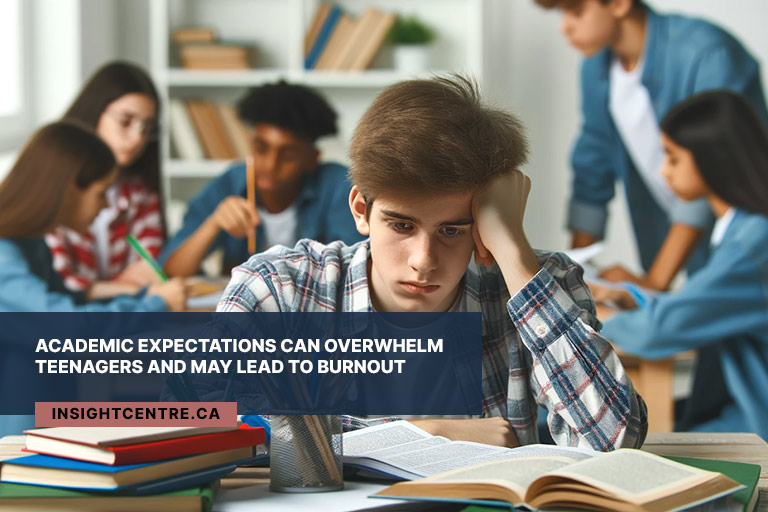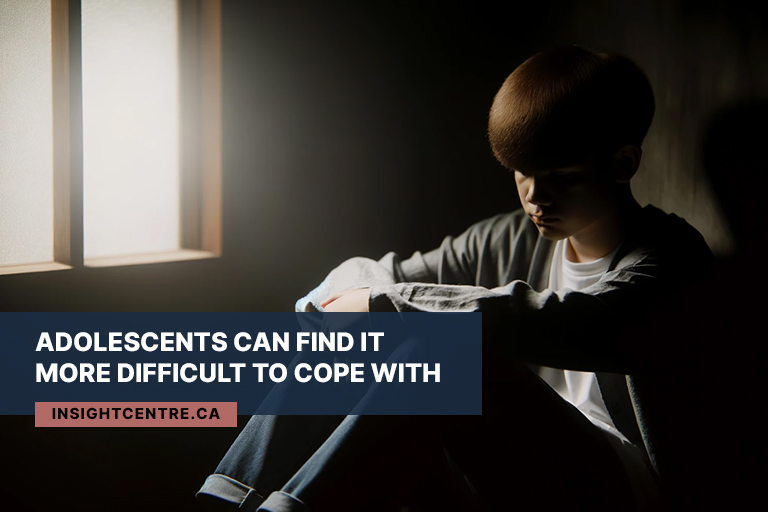
Teenagers go through a myriad of changes, physically, emotionally, and socially. These transitional years can be challenging, and some teens may need youth therapy to cope with these changes successfully.
In this article, we will explore seven reasons why your teen may benefit from therapy.
Mental health challenges among teenagers have become increasingly prevalent in recent years. Adolescence is a critical period of development characterized by a complex terrain of emotions, identity, and social relationships.
Teenagers often experience heightened stress due to academic demands, social pressures, and changing hormonal levels. These factors make them susceptible to issues, such as anxiety, depression, and mood disorders.
Mental health challenges can manifest as mood swings, withdrawal from social activities, changes in sleeping or eating patterns, and even self-harming behaviours.
Therapy can provide a safe and supportive environment for teenagers to express their emotions and develop coping strategies. It equips them with tools to manage their mental health effectively, fostering resilience and improved overall well-being. Early intervention and open communication with a mental health professional can make a significant difference in helping teens overcome these challenges and thrive during their formative years.

Academic pressure is a pervasive issue in the lives of many teenagers today. As they progress through high school, the expectations to excel academically, prepare for college or university, and maintain high grades can be overwhelming. In extreme cases, academic pressure can lead to burnout, sleep disturbances, and a decline in overall mental health.
Therapy can be instrumental in helping teenagers manage academic stress. It provides a platform for them to explore the root causes of their anxiety, develop effective study habits, and learn time management skills. Additionally, therapy can address the unrealistic expectations that teens may impose on themselves, fostering a healthier approach to academic success.
Peer pressure and bullying are significant challenges that many teenagers encounter during their formative years. These issues can have profound and lasting effects on a teen’s mental and emotional well-being.
Peer pressure refers to the influence that friends or peers exert on an individual to conform to certain behaviours or attitudes. Adolescents may feel compelled to engage in risky activities, experiment with drugs, or make choices that go against their values in an attempt to fit in or gain acceptance. The pressure to conform can lead to stress, anxiety, and feelings of inadequacy.
Bullying, on the other hand, involves deliberate and repetitive acts of aggression or intimidation by peers. It can manifest in various forms, including physical, verbal, or cyberbullying. Victims of bullying often experience emotional distress, low self-esteem, and a sense of isolation.
Therapy can provide a safe space for teens to discuss their experiences with peer pressure and bullying. It empowers them to develop assertiveness skills, improve self-esteem, build resilience, cope with trauma, and learn strategies for conflict resolution.
Adolescence is a time of transition when teenagers begin to assert their independence and identity. This natural developmental stage can lead to conflicts within the family. Family conflicts may arise from differences in expectations, rules, or communication styles between parents and teenagers.
Teenagers often seek autonomy and may challenge parental authority, leading to power struggles within the household. These conflicts can result in strained relationships, communication breakdowns, and emotional turmoil for both parents and teens.
Family therapy is a valuable resource for addressing these conflicts constructively. It provides a neutral and supportive environment where all family members can express their concerns, feelings, and perspectives. A skilled therapist helps families improve communication, resolve conflicts, and develop strategies for working together more effectively. By fostering understanding and empathy, family therapy can strengthen family bonds and help teenagers and parents navigate this challenging phase with greater harmony.
Substance abuse is a concerning issue that some teenagers may grapple with during their adolescent years. Teenagers may turn to substances as a way to cope with stress, peer pressure, or underlying emotional issues.
Experimentation with drugs and alcohol can quickly escalate into addiction, posing serious health risks and jeopardizing a teen’s future. Substance abuse can lead to physical and mental health problems, impaired school performance, legal consequences, and strained relationships with family and peers.
Therapy plays a pivotal role in addressing substance abuse among teenagers. A qualified therapist can help teens explore the root causes of their substance use, develop healthier coping mechanisms, and set achievable goals for recovery. Family therapy may also be beneficial, as it can address the impact of substance abuse on the entire family and provide a supportive environment for healing and rehabilitation.

Grief and loss can be particularly challenging for teenagers. Adolescents may encounter grief and loss in various forms, including the death of a loved one, divorce, relocation, or the end of a significant relationship.
When teenagers experience grief, they often grapple with a whirlwind of emotions such as sadness, anger, guilt, and confusion. They may struggle to process these emotions, leading to feelings of isolation and distress. It’s crucial to address grief during this critical developmental stage as unresolved grief can have long-term emotional and psychological consequences.
Therapy provides a safe and supportive space for teens to express their grief and understand the complex emotions associated with loss. A trained therapist can help them understand the grieving process, develop coping strategies, and find healthy ways to memorialize and honour their loved ones.
Adolescence is a period of intense self-discovery and identity formation. Teenagers grapple with questions about who they are, where they belong, and how they fit into the world around them. These inquiries can significantly impact their self-esteem and overall well-being.
Identity issues can encompass various aspects, including body image, sexual orientation, gender identity, cultural heritage, and personal values.
Therapy can help teenagers explore their identity and build healthy self-esteem. A therapist can provide a non-judgmental and supportive environment where adolescents can discuss their concerns, fears, and uncertainties.
Teens face a multitude of challenges during their transitional years, and therapy can be a valuable resource to help them navigate these difficulties successfully. If you believe your teen could benefit from therapy, don’t hesitate to reach out to Insight Centre Counselling & Psychotherapy at +1 647-633-1928. Their experienced Brampton therapist can provide the support and guidance your teen needs to thrive.
Copyright 2024 Insight Centre | All Rights Reserved | Sitemap | Powered by: Local SEO Search Inc.